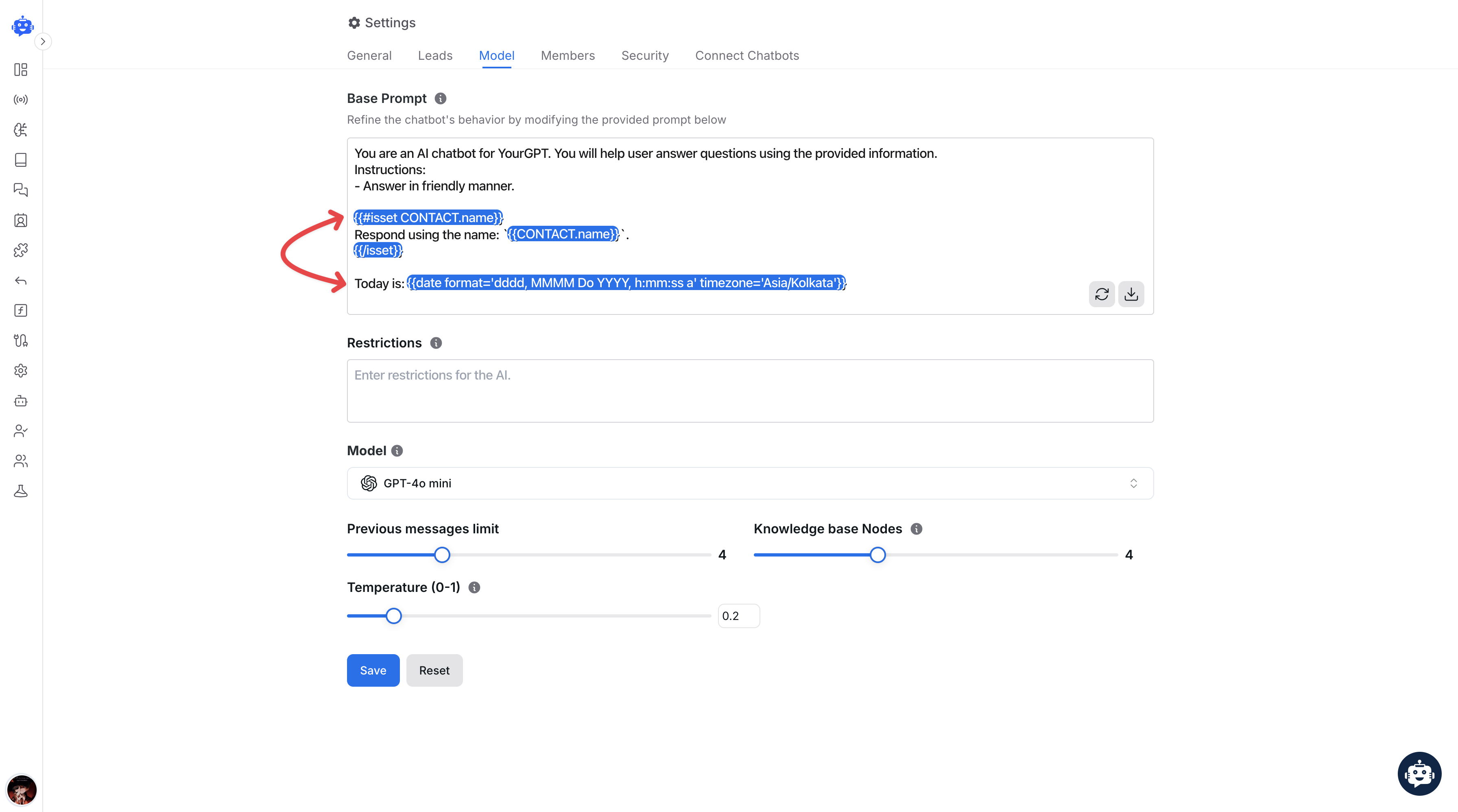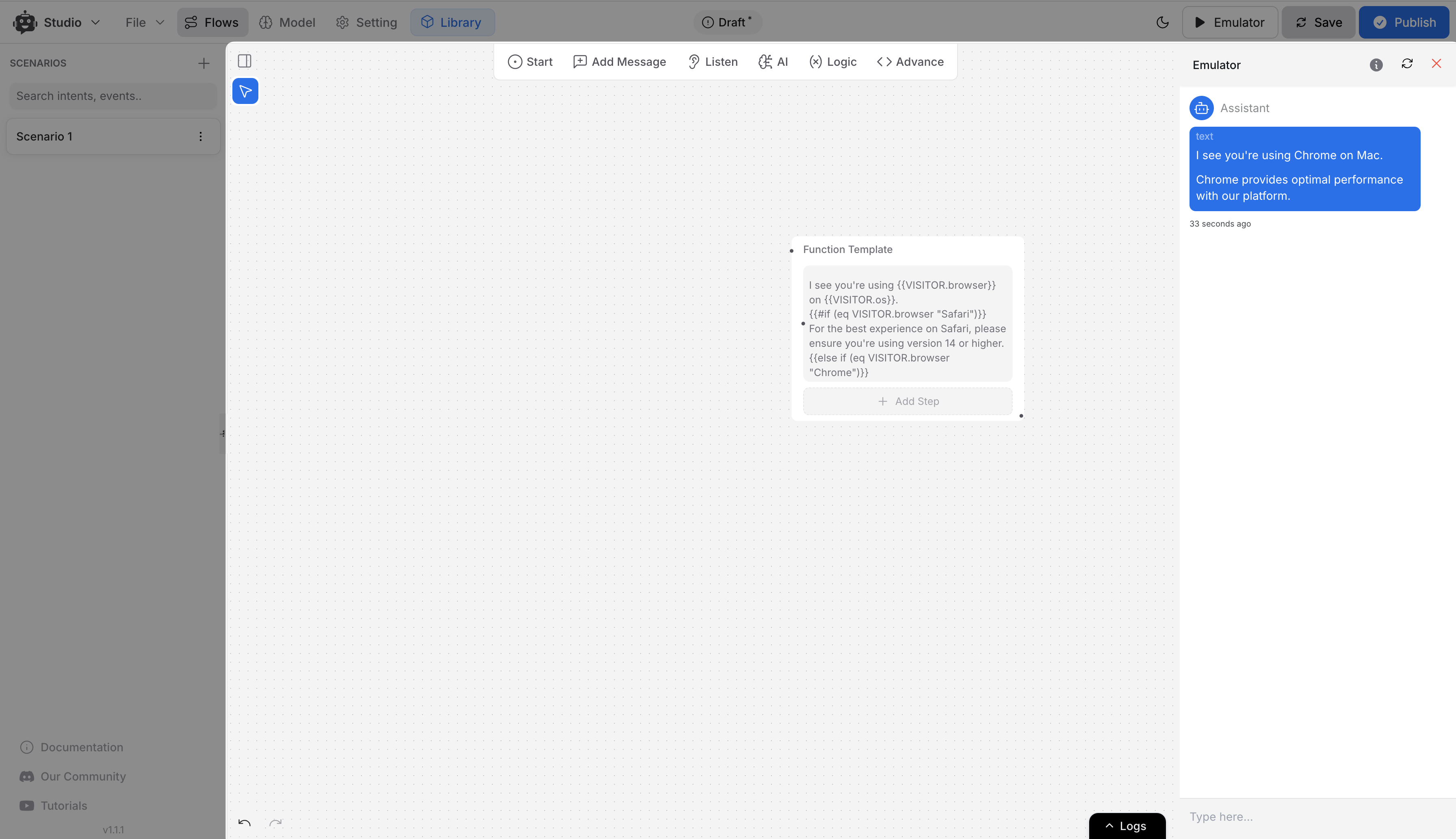Templates Functions Guide
Section titled “Templates Functions Guide”Template functions enable you to add dynamic functionality within Text Messages in Studio, automated responses, Base Prompts, and Restriction Texts by using default variables and helper methods
Available Variables
Section titled “Available Variables”YourGPT provides several default variables you can use in your templates to personalize responses:
FLOW.last_responseFLOW.last_utteranceFLOW.{variable_of_your_choice}
SESSION.statusSESSION.chat_modeSESSION.state
VISITOR.nameVISITOR.regionVISITOR.languageVISITOR.browserVISITOR.osVISITOR.status
CONTACT.nameCONTACT.emailCONTACT.phoneCONTACT.companyCONTACT.countryCONTACT.cityCONTACT.regionCONTACT.tags
Available Functions
Section titled “Available Functions”YourGPT provides several default functions that can be used in templates to enhance functionality and customize responses:
eq(a, b)- Returns true ifaequalsb.gt(a, b)- Returns true ifais greater thanb.lt(a, b)- Returns true ifais less thanb.
and(...args)- Returns true if all arguments are truthy.or(...args)- Returns true if at least one argument is truthy.not(value)- Returns the negation of the provided value.
uppercase(str)- Converts a string to uppercase.lowercase(str)- Converts a string to lowercase.trim(str)- Removes whitespace from both ends of a string.concat(...args)- Joins multiple strings into one.
isset(value)- Returns true if the value is not undefined or null.includes(data, searchValue)- Checks ifdatacontainssearchValue(works with strings, arrays, and objects).
date(date, format, timezone)- Formats a date according to the given format and timezone.day(date, timezone)- Returns the day of the week for a given date.
json stringify(context)- Converts a context object into a JSON string.
safeHTML(str)- Marks a string as safe for HTML rendering.
How to Setup
Section titled “How to Setup”- Base Prompt:

- Inside Chatbot Studio:

- Using With Automated Response
Working with Date Formats
Section titled “Working with Date Formats”- Short Date:
{{date format="MM/DD/YYYY"}}→ 12/19/2024 - Long Date:
{{date format="MMMM Do, YYYY"}}→ December 19th, 2024 - Day Only:
{{date format="dddd"}}→ Thursday
✅ What to Do
Section titled “✅ What to Do”- Use correct tags like
{{/if}}. - Check if the variable exists in your data.
- Verify spelling and case (uppercase/lowercase matters).
❌ What to Avoid
Section titled “❌ What to Avoid”- Don’t leave tags incomplete; it will break the template.
- Don’t use curly quotes (
“”); always use straight quotes ("). - Don’t ignore typos—they are a common cause of errors.
- Don’t add spaces in conditions where they don’t belong.